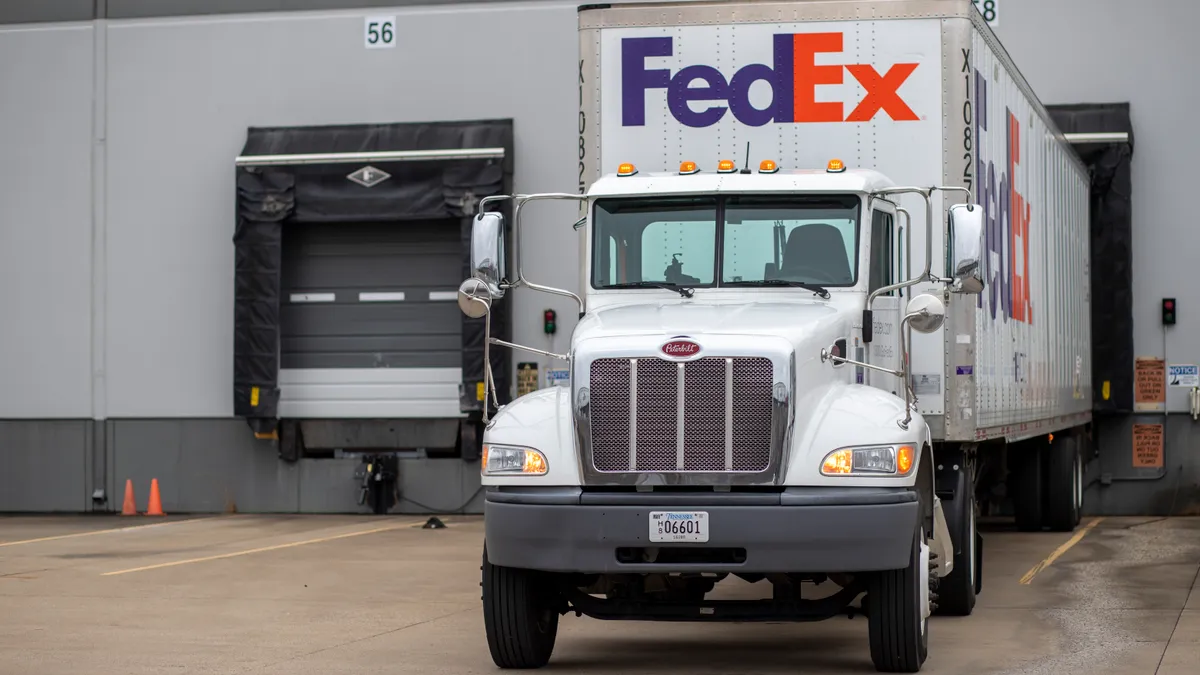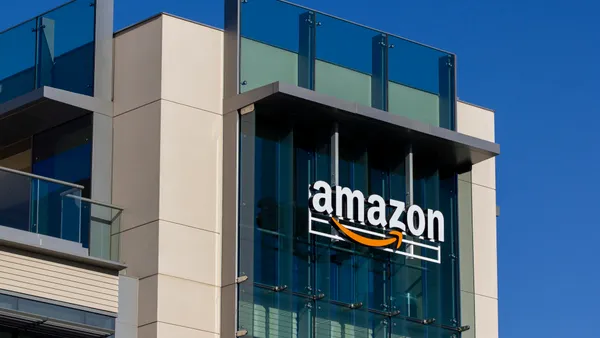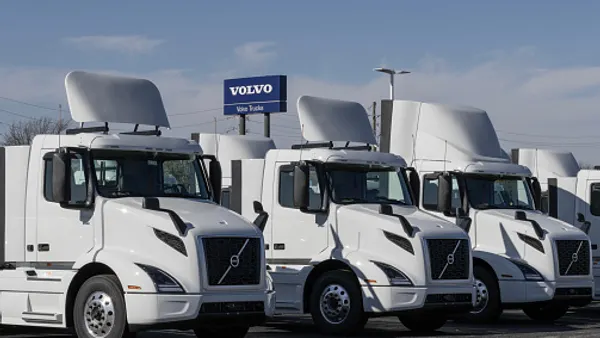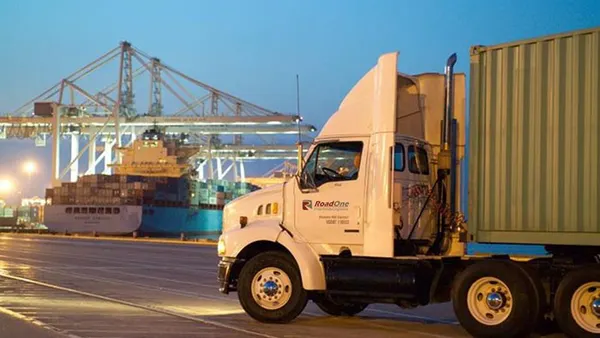Dive Brief:
- Schneider's daily order rejections climbed to record levels in Q3, said Schneider CEO Mark Rourke, as freight demand exceeded the TL carrier's abilities. Unloading issues have also slowed down the supply chain, a result of COVID-19 issues disrupting the Schneider network, Rourke told analysts during a Thursday earnings call.
- Schneider's internal challenge during this time is a familiar problem for carriers. "Driver availability is as difficult in the present environment as I have seen in my 30-plus years in this industry," Rourke told analysts. "I think it's well documented the new-driver funnel to the industry is significantly constrained, and that's been as a result of COVID-19 and the number of CDL graduates that are available to come into the industry." Rourke said driver retention has improved, but teams, needed for sensitive cargo, have been reduced. Rourke said team drivers do not like the tight living spaces of Class 8 tractors. The carrier lost about 250 drivers from Q2, Rourke said.
- Low inventory and stockouts are a "big concern" for all retailers, of all sizes and specialties, and the issues will remain well into 2021, Rourke said.
Dive Insight:
Because of low inventories, Schneider is in the odd position, like many TL carriers, of having too many incoming business orders while having too few drivers and too little equipment capacity to meet the demand. Initially, COVID-19 depressed TL spot prices, sidelining many independent truckers because rates were too low.
But as the summer wore on, TL spot rates improved. According to Tim Denoyer, ACT Research vice president and senior analyst, composite TL spot rates are 41% higher, for the week ended Sunday, YoY.
At the same time, despite network issues, Schneider was able to cut expenses, focusing on cost management and yield improvement in Q3. Schneider had a drop in Q3 revenues by 4% YoY as a result, but net income jumped 126%.
The freight market has been pushing profits up for TL carriers. Knight-Swift, the nation's largest TL carrier, reported on Oct. 21 that Q3 revenues and net income exceeded numbers from Q3 2019, a sign pandemic-related shutdowns and business doldrums have largely faded. Net income was up 63.6% YoY, according to Knight-Swift's Q3 earnings release.
One problem for TL carriers is some owner-operators, once working under the wing of Schneider and other TL firms, are converting to going completely solo, to take advantage of the higher rates in the TL spot market. Rourke said the trend had effect on Schneider's operations in Q3.
But the issue is not entirely new. Rourke told analysts that Schneider saw the trend pop up in 2018, when spot rates were also rising.









